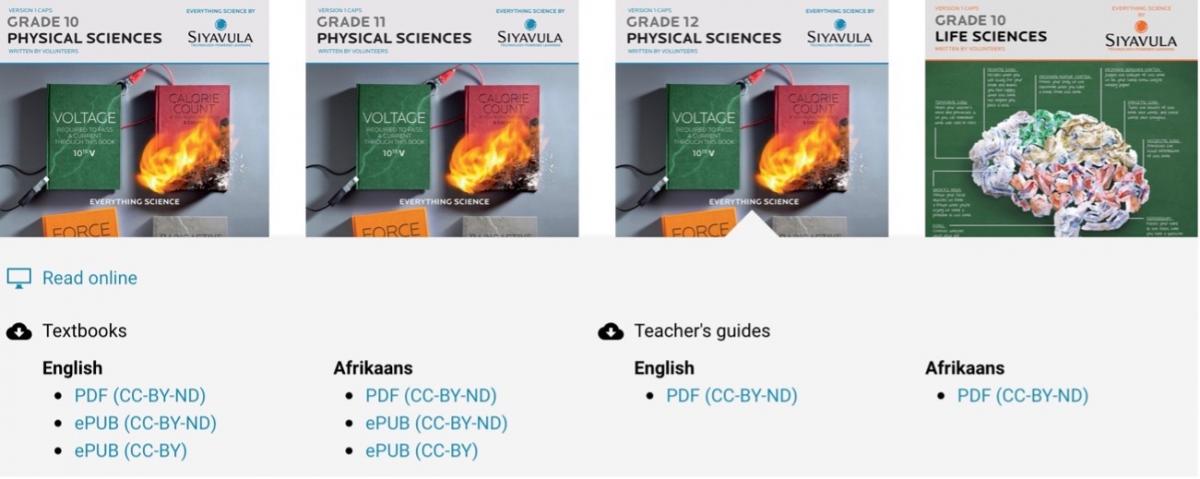
Image courtesy of qthomasbower, CC-BY-SA 2.0
As readers will know, OER Africa is a strong proponent of open educational resources (OER) and open licensing. Creative Commons licences are the ones most frequently used when OER content is produced. There are six of them, which range from very permissive, allowing copying and modification (CC BY), to those that are more restrictive, permitting distribution of a work in its original form, but no modification (CC BY-ND). Users need not request permission to use resources with a CC licence, but the terms of each licence must be met. For more information on CC licensing, go to the OER Africa tutorial on Finding Open Content.
Creative Commons and other organisations discuss OER in the context of five key points called the five Rs – reuse, retain, revise, remix, and redistribute.[1] Retain, reuse, and redistribute mean that users have the right to download, distribute, and keep the content without requesting permission from the resource creator. Revise and remix mean that the user may change the content in some way without asking permission. As an example, the stories on African Storybook and Storyweaver can be reused, retained, revised, remixed, and redistributed. At the tertiary level, all OER Africa content carries a CC BY licence. Go to the OER Africa tutorial on Adapting Open Content for more information on the five Rs.
Although many OER proponents argue that all five Rs are required in an open licence for a resource to be considered truly open, some organisations have opted for more restrictive licences. Two African award-winning early literacy NGOs – Ubongo, headquartered in Dar es Salaam, and the Molteno Institute for Language and Literacy (MILL), based in Johannesburg – have each decided to permit three Rs, but not to allow remixing or revision. MILL limits its resources to a non-commercial and non-derivative (CC BY-NC-ND) licence so that the methodology of its Vula Bula literacy materials can be retained. Ubongo uses the same licences for much the same reason; it does not wish its strict quality assurance methods to be compromised in any way through someone else’s adaptation.
The experience of Ubongo and other organisations with different kinds of CC licences is discussed in Closed or open? Ubongo’s switch from copyright protected to Creative Commons licensing.
In many countries, the high cost of textbooks and financial burdens placed on students have led initiatives to write and publish openly licensed textbooks. Siyavula, a South African NGO, produces open textbooks in mathematics and science in English and Afrikaans that are aligned to the South African curriculum as set by the Department of Basic Education (DBE). It licenses some versions of its textbooks only as CC BY-ND, while others carry a CC BY licence. Textbooks that feature a DBE logo are branded with a CC NY-ND licence to prevent any changes without permission, while the logo does not appear in the CC BY version. The ones in the latter category are downloadable in ePUB format to allow for easy adaptation.
Figure 1 Siyavula textbooks are available in PDF or ePUB formats depending on the licensing conditions.

Licence type is an important consideration, but file format is equally significant. By way of example, text document formats such as Word or ePUB files are relatively easy to edit if you have the required software, but their PDF equivalents are not. In addition, video can be particularly challenging to adapt, even if it is legally permissible. Khan Academy (KA) videos are a case in point. KA offers most of its videos with a CC BY-NC-SA licence, which allows for changes in content or language. But adaptation requires software and skills that many educators do not possess.
Thus, OER content creators should consider both the most appropriate licence to apply to their work and the format in which it will be released. In 2015, the University of Cape Town published a three-step guide for academics on open licensing, which includes a discussion of content creator intentions, institutional policy frameworks, and selecting and application of licences.
Figure 2 All resources must be atttributed to the content creator.

Finally, OER content creators must correctly attribute every resource they use while producing their OER. The figure above shows the attribution page of OER Africa’s learning pathway on finding open content. Note that each resource includes information on the licence used.
In conclusion, while the meaning of openness can relatively easily be defined, working out aspects of openness that are most suitable to implement for different kinds of resources is a process that will be strongly influenced by the wider context in which these decisions are being taken. Some organisations want to maximise distribution but are reluctant to permit adaptation of their resources because of potential problems this might create. Others have no objection to their resources being adapted, but those resources are in a format that cannot be easily revised. Still other organisations are unwilling for their content to be reproduced and monetised by commercial publishers, either for ethical reasons or because it might jeopardise their own financial sustainability. This suggests that we need flexible, less prescriptive definitions of OER that will remain relevant for different contexts and needs and that allow people and organisations to move towards greater degrees of openness in ways that work best for them.
For more articles in this series, click on the links below.
- Why is ‘Open Education’ important? (25 February 2021)
- How do I create a Community of Practice for Open Educational Resources? (3 February 2021)
- Do you want to communicate your research more widely? (19 January 2021)
- How can you get involved in the Open COVID Pledge for Education? (9 December 2020)
- How can governments and institutions operationalize the OER Recommendation? (19 November 2020)
- How can you use MOOCs in your teaching? (21 October 2020)
- Online assessment: How do we know if students are learning? (18 September 2020)
- UNESCO’s OER Recommendation Dynamic Coalition Consultations: The way forward (26 August 2020)
- The Open COVID Pledge for Education (12 August 2020)
- How can OpenCourseWare help you to improve your courses? (16 July 2020)
- Evaluating Open Content (2 July 2020)
- Adapting Open Content (25 June 2020)
- Sharing Africa’s knowledge through open data (18 June 2020)
- Sharing Africa’s knowledge through openly licensed publishing (11 June 2020)
- Podcast: OER and their Relevance to the COVID-19 pandemic (5 June 2020)
- Sharing Africa’s knowledge through open African research repositories (29 May 2020)
- Emergency Remote Teaching Webinar Series – All resources available (18 May 2020)
- OER Repositories in Africa (8 May 2020)
- How to Find Open Content (30 April 2020)
- Online (and offline) reading resources for children (23 April 2020)
- Showcasing OER Platforms: OER Africa (15 April 2020)
[1] Open Educational Resources (OER): 5 Rs of OER. (n.d.). Retrieved August 23, 2020, from https://nsufl.libguides.com/oer/5rs
